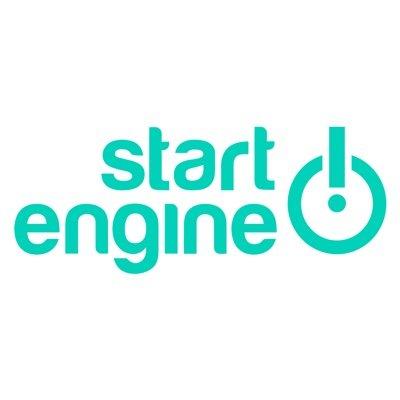Invest in startups in exchange for equity or debt
Invest in startups
Investments
$250
The minimum investment on StartEngine typically starts from $250, with the average being around $500.
High Risk
4/5
Investing on StartEngine carries risks including market volatility, liquidity challenges, regulatory changes, the high likelihood of company failure, dilution of shares, limited company information, and the absence of guaranteed returns.
High Risk
4/5
Investing on Republic involves significant risks such as the potential total loss of investment, illiquidity, long-term commitment without guaranteed returns, risk of dilution, limited information on investments, and possible impacts from regulatory changes.
Minimum Liquidity
1/5
Liquidity on StartEngine Secondary varies due to its nature as a peer-to-peer trading platform with specific eligibility criteria and trading hours. Initially limited to companies that have raised on StartEngine, the platform's liquidity is influenced by the availability of securities and the matching of buy and sell orders within designated market hours.
Minimum Liquidity
1/5
Investments on Republic are generally illiquid, meaning it may be difficult to sell or convert them into cash quickly.
Receive new reviews from Fintorial
Not Predictable Return
N/P
Potential returns on investments are uncertain and vary. StartEngine's role ends after a company's capital raising concludes, leaving it without control or insight into post-offering investment activities.
Not Predictable Return
N/P
Returns on Republic depend on the success of invested projects, companies, or funds, with potential payouts varying by investment terms.
Long-term Investment
5+ years
Investments through StartEngine typically have a long-term horizon, often requiring several years to potentially yield returns due to the early-stage nature of the companies.
Long-term Investment
3-10 years
Investments on Republic typically have a long-term horizon, often requiring several years to over a decade before potential returns are realized.
Who can invest
International
StartEngine allows anyone over 18 to invest. However, due to regulatory concerns, StartEngine does not currently accept investments from residents of the UK or Canada.
Who can invest
International
Anyone 18 or older can invest on Republic, with specific eligibility and investment limits varying by campaign. International investors can participate in many offerings, subject to local laws and specific campaign terms.
Moderate Volatility
3/5
Assets on StartEngine, mainly shares in startups and early-stage companies, exhibit high volatility due to uncertain revenues, evolving business models, and market sensitivity.
Moderate Volatility
3/5
Assets on Republic, like startups and private ventures, exhibit high volatility due to factors like market sentiment, regulatory changes, and business uncertainties. Valuation changes can be sudden and significant, reflecting the inherent risks and potential rewards of these types of investments.
Regulation and audits
SEC Regulated
StartEngine operates under strict regulatory oversight by the SEC and FINRA, ensuring adherence to investor protection and market integrity rules.
Regulation and audits
SEC Regulated
Republic operates under SEC regulations like Reg CF, Reg A+, and Reg D, ensuring transparency and investor protection. Companies on Republic must adhere to disclosure and, in some cases, undergo financial audits or reviews.
Insurance
Yes
StartEngine's memberships with FINRA and SIPC signify its commitment to investor protection, with SIPC offering insurance against the loss of cash and securities if a broker-dealer goes bankrupt. However, it doesn't cover market loss.
Insurance
No
Investments on Republic are not covered by traditional insurances or state guarantees like FDIC protection.
Payouts
No Recurring Payouts
Dividends on StartEngine depend on the individual company's policy and investment terms, with startups often reinvesting profits to fuel growth rather than distributing dividends.
Payouts
No Recurring Payouts
Dividends on Republic are not standard across all investments and depend on the specific agreement with each company. Some investments may offer dividends through revenue-sharing arrangements, but many startups prioritize reinvestment over distributing earnings.
Withdrawals
Investors can withdraw available funds from their StartEngine Investment Account after a 10-day waiting period from the initial transfer, subject to providing additional information for security if needed.
Withdrawals
On Republic, returns mainly come from liquidity events like acquisitions or IPOs, but these are uncertain and can take years. Selling shares directly is typically not possible within the first year due to federal restrictions, with few exceptions. Even after this period, the resale market is limited and subject to legal considerations.
Extra Fees
Yes
Investors may encounter a 3.5% processing fee on investments, depending on the company's choice. Wire transfers could have additional bank fees, while ACH and credit card investments don't have extra fees beyond the 3.5% if applicable. Trading on StartEngine Secondary is free for buying, but selling shares includes a 5% transaction fee.
Extra Fees
Yes
Republic charges an administrative fee for investment commitments, typically 2%, with a minimum of $5 and a maximum of $300, varying by offering. This fee is refunded if an offering is canceled or withdrawn but not if the investor cancels their commitment.
Taxes
Annual Statement
Investors must procure the necessary tax documents directly from the entities in which they have invested, since StartEngine does not distribute tax forms.
Taxes
Annual Statement
Republic does not provide tax documents or specific tax guidance for investments. Tax implications, such as for Crowd SAFE and Token DPA investments, depend on the investment's nature and liquidity events.

